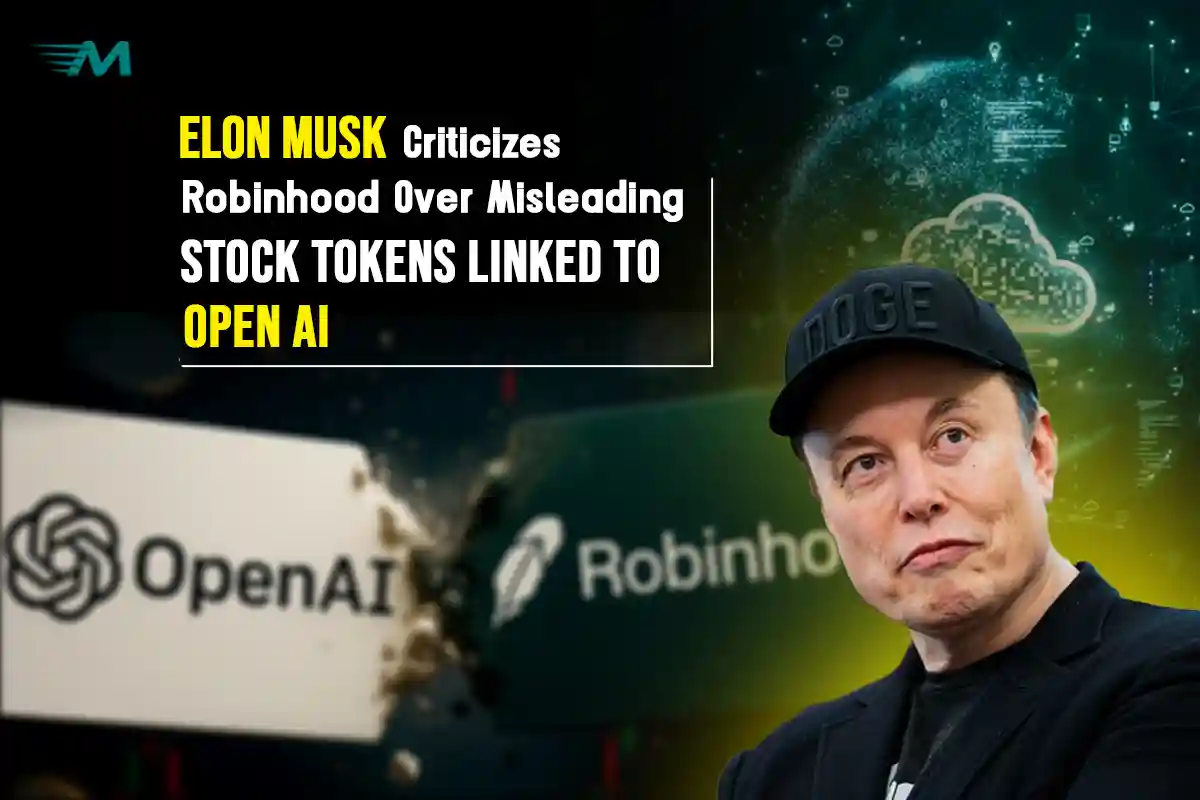Elon Musk Criticizes Robinhood Over Misleading Stock Tokens Linked to OpenAI
Elon Musk, known for his outspoken and candid views on technology and finance, has ignited a new controversy this time involving Robinhood, OpenAI, and the use of tokenized stocks. Robinhood, a popular trading platform, has been promoting synthetic stock tokens in Europe, allowing users to speculate on companies like OpenAI and SpaceX. However, Musk has called these offerings “fake equity,” warning investors about their legitimacy and the lack of real ownership involved.
What Sparked the Debate?
Robinhood recently began offering tokenized versions of company shares in its European markets. These tokens are synthetic representations of actual stocks, meaning they mirror the performance of the underlying asset but don’t provide legal ownership. Private companies like OpenAI and SpaceX were included in these offerings, which instantly drew scrutiny.
Soon after, OpenAI issued a public clarification, stating that it had not authorized Robinhood or any other entity to offer stock tokens using its name. The company stressed that these tokens do not represent real equity and could mislead investors.
Elon Musk’s Public Response
Elon Musk took to X (formerly Twitter) to express his concern, stating, “Your equity is fake.” It was a direct jab at the synthetic nature of these tokens, suggesting they give users a false sense of ownership and security. His statement went viral and quickly triggered discussions about the ethics and legality of tokenized assets.
Although Musk has long had issues with OpenAI’s corporate trajectory, his primary concern here seems to be investor awareness and protecting the public from financial misinformation.
Why Investors Should Be Cautious
Tokenized assets are becoming more popular on crypto-based trading platforms, offering people the ability to invest in tech giants and startups without owning traditional stocks. However, the downside is clear: these tokens lack critical ownership benefits such as voting rights, dividends, and legal claims.
For a casual investor, especially someone unfamiliar with financial jargon, these products can easily appear legitimate. Without in-depth knowledge or disclaimers, people may pour money into something that doesn’t grant any real stake in the company they believe in.
The Regulatory Grey Area
This incident also raises serious questions about financial regulation. Are tokenized stocks legal? Should platforms be allowed to sell representations of private companies without authorization? Currently, regulations in both the U.S. and Europe are not fully equipped to handle these emerging fintech practices.
Experts argue that more transparency is needed when offering such products. Clear disclaimers and tighter rules could help ensure that investors are not being misled. Unauthorized use of brand names like OpenAI can also result in legal challenges and further complications.
OpenAI and Musk: A Complicated History
The controversy also brings back attention to Elon Musk’s past with OpenAI. Musk Co-founded OpenAI with the vision of creating responsible and safe artificial intelligence. However, he left the organization due to disagreements over its direction and has since been openly critical.
In this case, Musk’s criticism of Robinhood indirectly supports OpenAI’s position—that unauthorized use of its brand for financial gain is unacceptable. His comment, while harsh, underlines the need for ethical boundaries in fintech and digital investment platforms.
Implications for the Future of Digital Finance
This event is not just about Robinhood or tokenized stocks it’s a signal for the future of how finance is evolving. As fintech companies continue to experiment with blockchain, tokens, and synthetic assets, regulatory bodies and investors must keep pace.
For now, platforms offering these products must do more to educate users and be transparent about what they’re buying. And for investors, the lesson is clear: always dig deeper and understand whether your investment represents real equity or just a digital imitation.
Conclusion
Elon Musk’s sharp response to Robinhood’s use of tokenized stocks involving OpenAI has once again highlighted the risks associated with emerging fintech products. With OpenAI distancing itself from the offering and Musk calling it “fake equity,” the conversation around ethical investing and investor protection has been reignited.
As the digital investment landscape becomes increasingly complex, investors must conduct thorough research. Not everything that looks like a stock behaves like one, and the price of misunderstanding that difference can be high. Regulatory frameworks must evolve to safeguard the interests of the investing public, especially when private companies’ names are used without consent.



